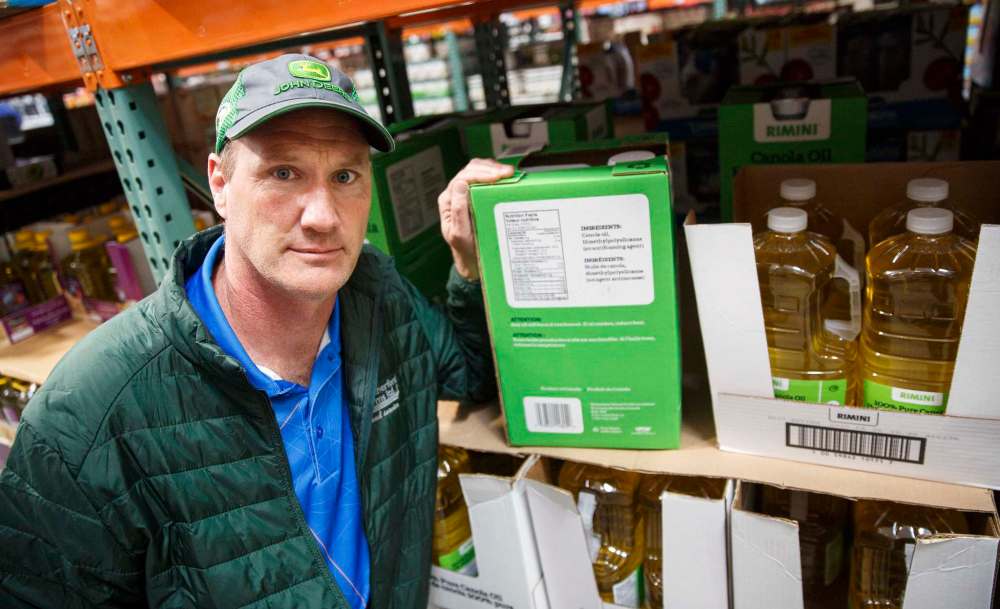Farmers feeling repercussions of trading spat
Advertisement
Read this article for free:
or
Already have an account? Log in here »
To continue reading, please subscribe:
Monthly Digital Subscription
$0 for the first 4 weeks*
- Enjoy unlimited reading on winnipegfreepress.com
- Read the E-Edition, our digital replica newspaper
- Access News Break, our award-winning app
- Play interactive puzzles
*No charge for 4 weeks then price increases to the regular rate of $19.00 plus GST every four weeks. Offer available to new and qualified returning subscribers only. Cancel any time.
Monthly Digital Subscription
$4.75/week*
- Enjoy unlimited reading on winnipegfreepress.com
- Read the E-Edition, our digital replica newspaper
- Access News Break, our award-winning app
- Play interactive puzzles
*Billed as $19 plus GST every four weeks. Cancel any time.
To continue reading, please subscribe:
Add Free Press access to your Brandon Sun subscription for only an additional
$1 for the first 4 weeks*
*Your next subscription payment will increase by $1.00 and you will be charged $16.99 plus GST for four weeks. After four weeks, your payment will increase to $23.99 plus GST every four weeks.
Read unlimited articles for free today:
or
Already have an account? Log in here »
Hey there, time traveller!
This article was published 22/03/2019 (2459 days ago), so information in it may no longer be current.
Craig Riese, one of the 43,000 Western Canadian farmers who produce about 20 million tonnes of canola every year, can already feel the effects of the news this week that China, Canada’s largest canola export customer, has halted Canadian canola imports.
“Any time your number one exporting customer tells you they are not interested in your product, you have to be concerned,” Riese said.
But there are degrees of concern.

Riese typically splits his 5,500 acre farm evenly between cereals and oilseeds and while he said he may “tighten up” some of the traditional oilseed acres into cereal, it likely will not be a significant alteration.
“We can’t really deviate that much from what we do year to year,” he said. “I can move a few hundred acres here and there and if we all do it, it will definitely bring the total acres down.”
Canola prices have come down recently, a price correction, Riese believes, that is at least partially because of an oversupply of the oilseed on the market right now irrespective of the Chinese market issues.
Jim Everson, the CEO of the Winnipeg-based Canola Council of Canada, said while he believes China remains a strong and important long-term customer for Canadian canola there are other countries “who value high quality Canadian canola.”
“But we think the fundamentals of our trade with China are very strong,” Everson said.
Riese said there are other markets for Canadian canola and he is taking the attitude that the sky is not necessarily falling.
“This won’t get resolved tomorrow but hopefully it’s not a long-term thing,” he said. “Things will move. We have a robust crushing industry in the province, thank goodness. I have a lot of canola in my bins, no doubt, but we’ll market it.”
martin.cash@freepress.mb.ca

Martin Cash has been writing a column and business news at the Free Press since 1989. Over those years he’s written through a number of business cycles and the rise and fall (and rise) in fortunes of many local businesses.
Our newsroom depends on a growing audience of readers to power our journalism. If you are not a paid reader, please consider becoming a subscriber.
Our newsroom depends on its audience of readers to power our journalism. Thank you for your support.

